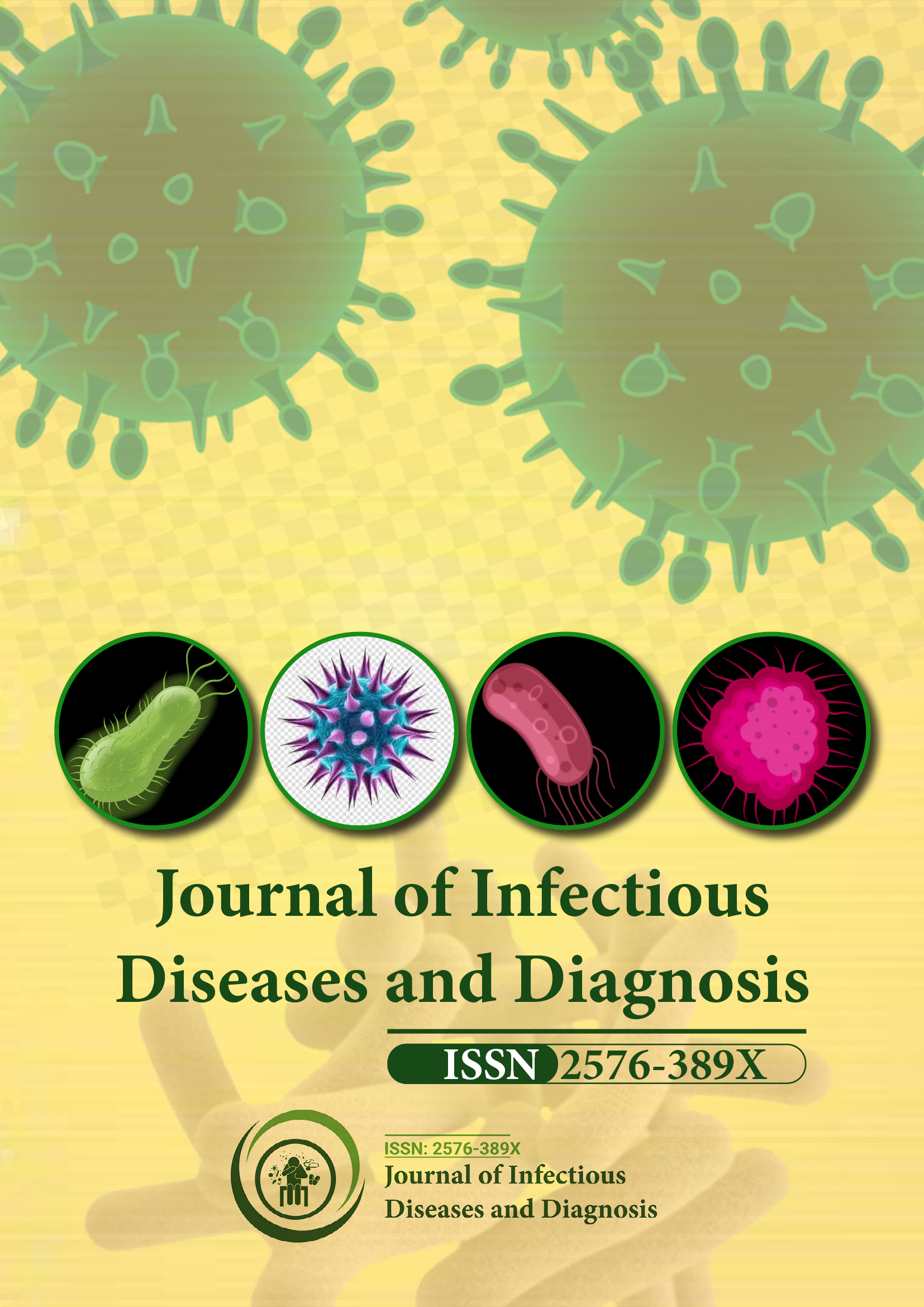में अनुक्रमित
- RefSeek
- हमदर्द विश्वविद्यालय
- ईबीएससीओ एज़
- पबलोन्स
- यूरो पब
- गूगल ज्ञानी
उपयोगी कड़ियां
इस पृष्ठ को साझा करें
जर्नल फ़्लायर

एक्सेस जर्नल खोलें
- अभियांत्रिकी
- आनुवंशिकी एवं आण्विक जीवविज्ञान
- इम्यूनोलॉजी और माइक्रोबायोलॉजी
- औषधि विज्ञान
- कृषि और जलकृषि
- चिकित्सीय विज्ञान
- जीव रसायन
- जैव सूचना विज्ञान और सिस्टम जीवविज्ञान
- तंत्रिका विज्ञान और मनोविज्ञान
- नर्सिंग एवं स्वास्थ्य देखभाल
- नैदानिक विज्ञान
- पदार्थ विज्ञान
- पर्यावरण विज्ञान
- पशु चिकित्सा विज्ञान
- भोजन एवं पोषण
- रसायन विज्ञान
- व्यवसाय प्रबंधन
- सामान्य विज्ञान
अमूर्त
नाइजीरिया के एडो राज्य में सार्वजनिक स्वास्थ्य सुविधाओं में वयस्क बाह्यरोगियों के बीच एंटीबायोटिक के उपयोग के प्रति ज्ञान, दृष्टिकोण, प्रचलन और गैर-अनुपालन के लिए संबद्ध कारक
एकेटे ए. टोबिन, मार्था ओकोनोफुआ
पृष्ठभूमि: एंटीबायोटिक प्रतिरोध से उत्पन्न कई संक्रामक रोगों के उपचार में देखे गए खराब रोग का निदान निर्धारित एंटीबायोटिक उपचार का पालन न करने के परिणामस्वरूप विवो में इष्टतम दवा सांद्रता प्राप्त करने में विफलता के लिए जिम्मेदार ठहराया गया है। अध्ययन का उद्देश्य नाइजीरिया में गैर-अनुपालन और संबंधित कारकों की व्यापकता का आकलन करना था।
तरीके: क्रॉस-सेक्शनल अध्ययन डिजाइन का उपयोग करते हुए, अध्ययन का संचालन करने के लिए नैतिक अनुमोदन के बाद पूर्व-परीक्षणित प्रश्नावली का उपयोग करके नाइजीरिया के एडो केंद्रीय सीनेटरियल जिले, एडो राज्य में 5 माध्यमिक और तृतीयक अस्पतालों के वयस्क सामान्य बाह्य रोगी क्लीनिकों में 800 सहमति देने वाले उपस्थित लोगों का साक्षात्कार लिया गया। स्वतंत्र चर सामाजिक-जनसांख्यिकीय, ज्ञान (अच्छा/ठीक/खराब), दृष्टिकोण (सकारात्मक/नकारात्मक), कथित डॉक्टर का समर्थन और कथित पारिवारिक समर्थन थे। द्विचर विश्लेषण के लिए ची-स्क्वायर परीक्षण का उपयोग किया गया और महत्वपूर्ण चरों का विश्लेषण बहुचर लॉजिस्टिक प्रतिगमन के साथ किया गया, जिसमें सांख्यिकीय महत्व, p, <0.05 के रूप में निर्धारित किया गया। परिणाम: प्रतिक्रिया दर 100% थी। बहुमत, 360 (45.0%), को खराब जानकारी थी और 74 (50.3%) का एंटीबायोटिक दवाओं के उपयोग के प्रति खराब रवैया था। एक सौ सैंतालीस उत्तरदाताओं (18.4%) को पिछले 4 महीनों में एंटीबायोटिक प्रिस्क्रिप्शन मिला था, जिनमें से 75 (51.0%) ने खुराक पूरी नहीं की, जिसका सबसे आम कारण लक्षणों में कमी (65.3%) बताया गया। बहुचर विश्लेषण में, रवैया, डॉक्टर और परिवार के सदस्यों से कथित समर्थन गैर-पालन के साथ नकारात्मक रूप से जुड़ा हुआ था।
निष्कर्ष: एंटीबायोटिक पालन में सुधार के लिए हस्तक्षेप शिक्षा, चिकित्सक-रोगी बातचीत और बीमार रोगी के लिए परिवार के समर्थन को बढ़ावा देने के आसपास केंद्रित होना चाहिए।